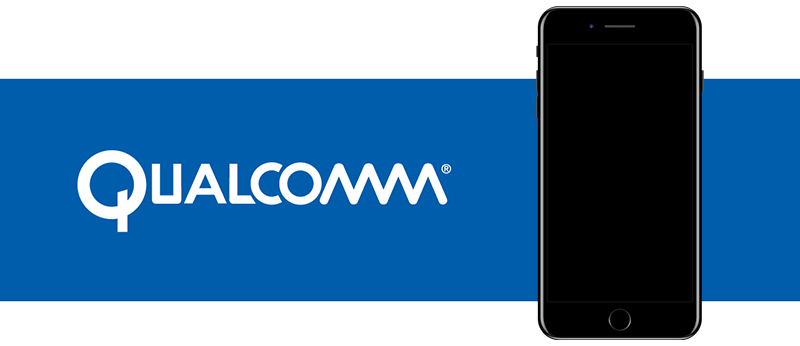퀄컴 스냅드래곤 칩이 "최소" 8개의 애플 특허를 침해
- 프로세서의 전력효율 관련 특허
- 퀄컴이 지난 7월 애플이 6개의 자사 특허를 침해했다며 수입금지를 주장한 것에 대해 애플은 퀄컴의 해당 특허가 "효력이 없다"고 주장
- 특히 스냅드래곤 800, 820 칩을 지목
- 해당 칩은 삼성, 구글도 쓴 전력이 있으나 애플은 이들을 제외하고 퀄컴만을 대상으로 함
- 퀄컴이 애플을 상대로 특허침해 시비를 벌이기 수 년 전 부터 애플은 이 특허들을 염두하고 있었다는 점을 강조
In the ongoing legal feud between Apple and LTE chipmaker Qualcomm, Reuters reports today that Apple has made the latest move by filing a countersuit against Qualcomm and claiming that the supplier's Snapdragon chips -- used in many Android devices -- infringe on the Cupertino company's patents.
The countersuit is Apple's retaliation against Qualcomm after the latter company sought iPhone and iPad import bans in the United States over the summer. At the time, Qualcomm alleged that Apple infringed on six Qualcomm patents related to carrier aggregation and technologies that were designed to allow iPhones to save battery life while communicating. Apple denied any of these claims and said that Qualcomm's patents were "invalid." 
Apple's new countersuit further revises its answer to Qualcomm's complaint from July by adding on the accusation of patent infringement surrounding the Snapdragon chips. The filing alleges that Apple owns "at least" eight battery life patents Qualcomm has violated, related to making sure that each part of the phone's processor draws only minimum power needed to function, powering down parts of the processor when not needed, and ensuring that sleep and wake functions work better for the user.
Apple specifically says that Qualcomm's Snapdragon 800 and 820 processors -- included in Samsung and Google smartphones -- infringe on these patents, but Apple has only named Qualcomm in its counter lawsuit. The specific monetary damages Apple is looking for were not disclosed.
Apple Inc on Thursday filed a countersuit against Qualcomm Inc, alleging that Qualcomm’s Snapdragon mobile phone chips that power a wide variety of Android-based devices infringe on Apple’s patents, the latest development in a long-running dispute.
“Apple began seeking those patents years before Qualcomm began seeking the patents it asserts against Apple in this case,” the company wrote in its complaint.
2017 has seen rebuttal after rebuttal in the Apple versus Qualcomm legal battle, kicking off in January when the FTC complained that Qualcomm had engaged in anticompetitive patent licensing practices. Soon after, Apple sued Qualcomm for $1 billion, accusing the company of charging unfair royalties for "technologies they have nothing to do with" and refusing to pay quarterly rebates. A Qualcomm countersuit followed in April, and the dispute escalated throughout the year with expanded lawsuits and claims lodged by each side.
Over the summer, Qualcomm began facing an additional lawsuit from the United States Federal Trade Commission, happening separately from the dispute with Apple but covering many of the same anticompetitive tactics that Apple claims in its own lawsuit.
'관심사' 카테고리의 다른 글
| 화웨이, 中價 스마트폰 시장 공략 박차 (0) | 2017.12.02 |
|---|---|
| 'LG 스마트폰' 이끌 황정환 신임 부사장은 누구? (0) | 2017.11.30 |
| 드론 농약 살포 7분에 200만원? 허와 실은 (0) | 2017.11.28 |
| CJ헬로, 알뜰폰협회 전격 탈퇴 (0) | 2017.11.27 |
| 아이폰X 첫날 7만대 개통 추정..번호이동 3만1천978건 (0) | 2017.11.25 |
